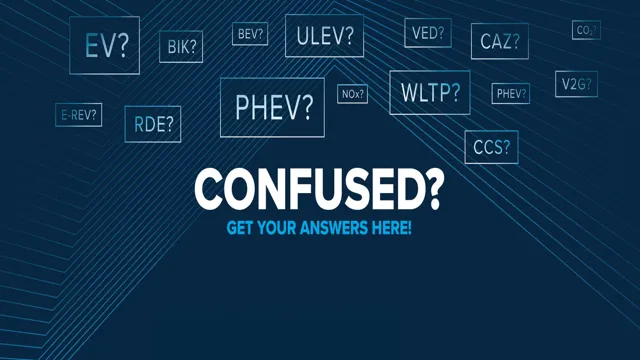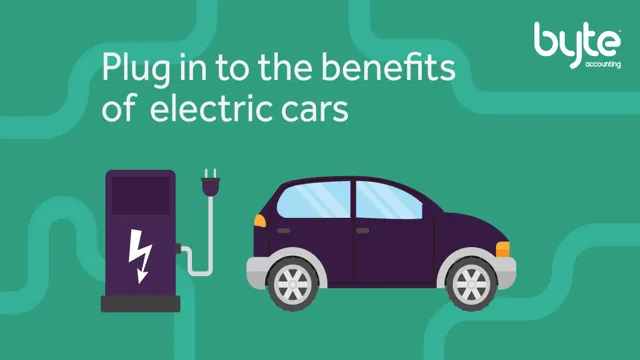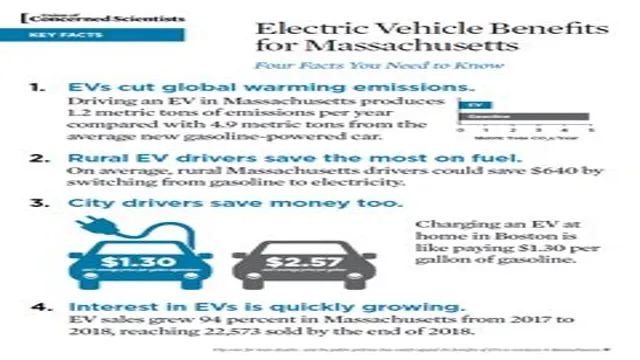Powering the Future: Benefits of Electric Cars for Public Utilities and the Environment
The future of transportation could look very different as electric cars become increasingly popular. Not only is this a positive step for the environment, but electric vehicles also come with a long list of benefits for public utilities. From reducing greenhouse gas emissions to providing new revenue streams, the advantages of electric cars are far-reaching for both the general public and the energy industry.
One significant advantage of electric cars is their ability to reduce greenhouse gas emissions. With the transportation sector being the largest contributor to carbon emissions in the United States, switching to electric cars can significantly reduce the amount of pollution released into the atmosphere. Not only does this benefit the environment, but it also improves the overall air quality for residents.
Moreover, electric cars can provide new revenue streams for public utilities. As more drivers switch to electric cars, utility companies can offer their charging services as a competitive advantage. To support this shift, many public utilities are implementing state-of-the-art charging infrastructure and offering special programs that give electric car drivers access to reduced rates and other incentives.
In summary, electric cars have numerous far-reaching benefits for public utilities. With the increased demand for sustainable and environmentally friendly solutions, the value of electric transportation is becoming more and more apparent. As we look to the future, it is clear that electric cars will play an essential role in the energy industry and our lives as a whole.
Reduced Carbon Emissions
One of the major benefits of electric cars is the reduced carbon emissions they produce, making them an attractive option for public utilities. Conventional gas-powered vehicles emit harmful greenhouse gases that contribute to climate change, air pollution, and health problems. Electric cars, on the other hand, run on electricity that is generated from renewable sources such as wind, solar, or hydro, resulting in zero emissions.
This not only helps to reduce harmful pollutants but also helps lower the carbon footprint. The switch to electric vehicles also minimizes the risk of oil spills and reduces the dependence on foreign oil imports, making it a win-win situation for both the public utilities and the environment. Therefore, investing in electric vehicles is a smart move for public utilities and one that benefits everyone in the long run.
Data shows electric cars emit 54% less carbon than gas-powered cars.
Electric cars are becoming more and more popular due to their many benefits, one of which includes reduced carbon emissions. In fact, recent data has shown that electric cars emit 54% less carbon than gas-powered cars, making them an incredibly eco-friendly option. This is because electric cars operate on electricity, which produces lower emissions than fossil fuels.
Additionally, electric cars are more energy-efficient and require less energy to operate, meaning that they also produce less carbon emissions during their manufacturing process. From reducing air pollution to helping combat climate change, electric cars have a lot of potential to create a cleaner, more sustainable future. So next time you’re in the market for a new car, consider the benefits of electric – it’s not only good for your wallet, but also for the planet.

This reduction in carbon emissions can help public utilities meet their sustainability goals.
Reduced Carbon Emissions As more people become aware of the impact of carbon emissions on the environment, public utilities are taking steps to reduce their carbon footprints. One way they are doing this is by investing in alternative energy sources such as wind and solar power. By using these renewables, they are able to decrease their dependence on fossil fuels and reduce the amount of carbon dioxide released into the atmosphere.
This reduction in carbon emissions can help public utilities meet their sustainability goals, while also benefiting the environment and the communities they serve. It’s important to note that reducing carbon emissions isn’t just about doing the right thing for the planet – it often makes good business sense as well. By investing in renewables, public utilities can create new revenue streams and reduce operational costs over time.
Overall, reducing carbon emissions is a win-win for everyone involved. By working together to tackle climate change, we can create a more sustainable future for ourselves and future generations.
Lower Operating Costs
One of the significant benefits to public utilities utilizing electric cars is the lower operating costs. Electric cars have lower maintenance costs since they have fewer moving parts and no need for oil changes. In addition, they require fewer repairs as they do not have complex combustion engines.
Public utilities also benefit from the lower fuel costs since electricity prices are generally more stable than gasoline prices. Furthermore, by using green energy sources, such as solar or wind power, public utilities can further reduce their operating costs and contribute to a greener environment. In the long run, these savings can translate into lower utility costs for consumers.
Adopting electric cars as part of their fleet can, therefore, provide public utilities with a cost-effective and sustainable transportation solution.
Electric cars have lower operating costs due to lower maintenance cost and cheaper fuel.
Electric cars are certainly the future of transportation owing to their numerous benefits, including lower operating costs. In comparison to traditional gas-powered cars, electric cars have lower maintenance costs and cheaper fuel. Unlike traditional cars that use internal combustion engines, electric cars have fewer moving parts, eliminating the need for oil changes, spark plugs, and other routine maintenance that would otherwise add to the total cost of owning a car.
Moreover, electric cars run on electric power, which costs much less than gas. In fact, studies have shown that driving an electric car could save an average of 60% on fuel costs. When you add up the savings on maintenance and fuel, electric cars have a significantly lower total cost of ownership.
Hence, it makes perfect sense for anyone looking to save money in the long run to consider purchasing an electric car as their next vehicle.
This can lead to lower costs for public utility companies that use electric cars in their fleets.
Electric cars can be a game-changer for public utility companies, as they can significantly reduce operating costs while also contributing towards a greener environment. With the rise in electric cars, the cost of maintenance, fueling, and repairing these vehicles has gone down considerably. In addition, electric cars offer an advantage of having fewer movable parts than traditional gasoline cars, which means there is less that can go wrong, resulting in considerably less maintenance costs.
Moreover, the price of electricity is predictable, and there is no fluctuation like gas or oil prices, allowing public utility companies to have more precise budgeting and forecasting. This can lead to a substantial cost savings for companies that use electric cars in their fleets. Consequently, saving on these expenses could help public utility companies invest in other crucial areas of their businesses or even pass the savings onto their customers.
The shift towards electric cars positively impacts both our pockets and the environment.
Increased Reliability
One of the biggest benefits that electric cars can offer to public utilities is increased reliability. In the past, power outages often occurred due to issues with the power grid or natural disasters like storms or earthquakes. However, electric vehicles can now provide vital backup power in case of such emergencies, ensuring that the public utility can continue operating uninterrupted.
Electric cars can be used as mobile power generators, supplying electricity to homes and businesses during power outages or peak demand periods. This new source of backup power is a game-changer for public utilities, as it greatly improves their ability to provide reliable electricity to their customers. By incorporating electric cars into their infrastructure, public utilities can help to create a more resilient and reliable power grid, benefitting both the utilities themselves and the communities they serve.
Electric cars have fewer moving parts, leading to increased reliability.
When it comes to electric cars, one of their most significant advantages is increased reliability, thanks to their simpler design and fewer moving parts. Compared to traditional gas-powered vehicles with their complex engines, transmissions, and other parts, electric cars have far fewer components that can wear down or break over time. This means that electric cars are less likely to suffer from mechanical problems or breakdowns, allowing drivers to enjoy a more smooth and hassle-free driving experience.
Plus, with fewer parts to maintain and replace, electric cars can be more affordable to own over the long term, saving drivers money on repairs and maintenance costs. All in all, if you’re looking for a car that’s reliable, efficient, and safer for the environment, investing in an electric car is an excellent choice that’s well worth considering.
This can benefit public utilities that need reliable vehicles for their operations.
When it comes to public utilities, reliability is key. These organizations need vehicles that can withstand heavy usage and perform consistently, day in and day out. This is where electric vehicles come in, providing a reliable and low-maintenance option for public utilities.
With fewer moving parts and less need for maintenance, EVs can help utilities save on repair costs and keep their vehicles on the road for longer periods of time. From utility trucks to maintenance vehicles, electric fleet vehicles can help public utilities increase reliability and reduce downtime. This can in turn benefit customers, as utilities can more efficiently and effectively maintain critical infrastructure and respond to emergencies.
Overall, the increased reliability offered by electric vehicles can make a significant impact on the operations of public utilities.
Improved Public Perception
One of the significant benefits of public utilities incorporating electric cars into their fleets is the improved public perception of the utility company. By utilizing eco-friendly transportation options, public utilities can showcase their commitment to sustainability and reducing their carbon footprint. This can increase trust and loyalty among consumers who prioritize environmental considerations in their daily routines.
Moreover, electric cars produce less noise, reducing noise pollution in high traffic areas and improving overall air quality. Utilizing electric cars can also lead to a reduction in costs for public utilities, as electric vehicles require less maintenance and cost less to operate. Overall, the adoption of electric cars by public utilities can lead to a positive shift in consumer perception while simultaneously reducing costs and promoting environmental sustainability.
Public utilities can improve their reputation and appeal to customers by adopting electric cars.
Adopting electric cars can have a tremendously positive impact on public utility companies, enhancing their reputation and improving their appeal among customers. When utility companies adopt electric cars, they demonstrate a commitment to sustainability, which is an important value among many customers today. Electric cars are widely regarded as environmentally friendly and reliable, which further enhances the image of public utility companies that adopt them.
This can lead to increased trust and loyalty among customers who care about the environment and social responsibility. Moreover, customers who see their utility companies adopting electric cars are more likely to view the company as forward-thinking and innovative, which can in turn help attract new customers. With electric cars continuing to grow in popularity, it makes sense for public utility companies to embrace this technology and reap the benefits of improved public perception.
This can lead to increased trust and support from the community.
Improved public perception is one of the biggest benefits of building trust and support within the community. When people believe in a company or organization, they are more likely to speak positively about it and recommend it to others. This can lead to increased exposure and a larger customer base.
By treating its customers and stakeholders with respect and transparency, a business can improve its reputation and earn valuable trust. This trust can also result in better employee morale and productivity, as people enjoy working for a company that they believe in. By focusing on building trust and support from the community, companies can improve their public perception and establish themselves as reliable, trustworthy partners in their industries.
Conclusion
In conclusion, public utilities embracing electric cars will not only revolutionize the transportation industry but will also bring immense benefits to the community. Electric cars will not only reduce air pollution and greenhouse gases but will also provide a cost-effective and reliable source of energy for daily commutes. The integration of electric cars into public utilities will not only stimulate economic growth but will also improve the quality of life for citizens.
So let us all come together and drive towards a brighter, cleaner, and more sustainable future with electric cars!”
FAQs
How do electric cars benefit public utilities?
Electric cars reduce the overall demand for fossil fuels which can ultimately benefit public utilities by lowering the demand for non-renewable resources.
Are there any financial benefits to implementing electric car usage in public utilities?
Yes, electric cars can have lower operating costs and require less maintenance compared to regular vehicles, which can result in lower expenses for public utilities.
How can public utilities encourage the use of electric cars?
Public utilities can offer incentives such as discounted charging rates, access to charging stations, or even partnerships with electric car manufacturers to make the transition to electric cars more enticing for consumers.
What impact do electric cars have on the environment and public health?
Electric cars produce fewer emissions than traditional gasoline-fueled vehicles, resulting in cleaner air and a healthier environment for the general public. Additionally, electric cars produce less noise pollution which can contribute to a better quality of life in urban areas.



